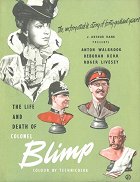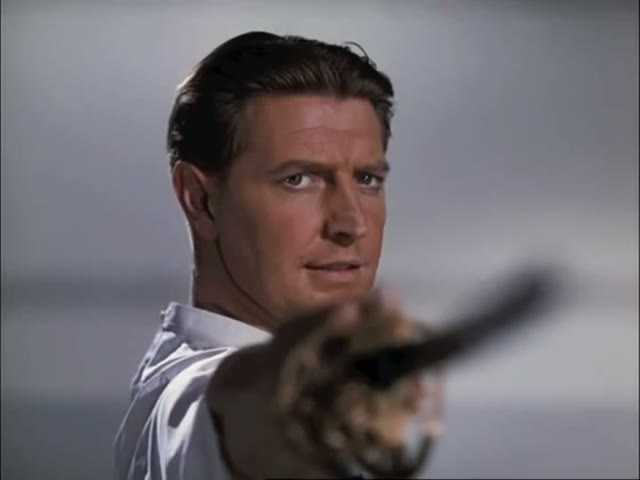Kamera:
Georges PérinalMusik:
Allan GrayBesetzung:
James McKechnie, Vincent Holman, Roger Livesey, David Hutcheson, Roland Culver, Deborah Kerr, Albert Lieven, Arthur Wontner (mehr)Inhalte(1)
Der junge britische Offizier Clive Candy (Roger Livesey) reist während des Zweiten Burenkriegs nach Deutschland. Sein hoch gestecktes Ziel: Die negative Propaganda gegen das britische Militär zu unterbinden. Doch ehe er es sich versieht, ist Candy für ein Duell mit dem deutschen Offizier Theo (Anton Walbrook) gebucht. Der Brite und der Deutsche schmieden in den nächsten Jahrzehnten trotzdem eine Freundschaft, die auch den Ersten und den Zweiten Weltkrieg überdauert. (Koch Media)
(mehr)Kritiken (2)
I can’t entirely come to terms with the fact that this chronicle of one life only veils its war-propagandistic message – the mythologising of the British army – with a boldly humanistic message of friendship between nations (the same idea on which Stairway to Heaven is based). The jovial Clive Candy, convincingly portrayed by one actor in all three acts, personifies everything good about the British Empire, a tradition that all young whippersnappers should revere. He is the bearer of qualities such as loyalty, leniency and love of country (the endlessly mentioned home). The music of his life is a military march. Each of his gestures and everything he says presents an argument for the existence of the army. Fortunately, Powell and Pressburger were clever and capable enough as filmmakers to stick with forming an idealised image of a man who may easily have been modelled on Winston Churchill (who hated the film because of its sympathetic portrayal of the Germans). Above all, The Life and Death of Colonel Blimp is an exquisite example of how to engagingly chart two human lives over the course of forty years. With the storytelling confidence of New Wave filmmakers, the duo employ original narrative shortcuts (resolving multi-year transitions, omitting important events, condensing time) and audacious Buñuel-esque tests of the viewer’s attention (the three different characters played by Deborah Kerr). The flashback structure of the narrative, where the whole film is an explanation of what happens in the prologue and the individual sequences are similarly based on the explanation of the information provided (the narrative thus atypically moves from effects to causes at both the lower and higher levels), stimulates our curiosity while also functioning as a formalistic expression of the film’s central idea. It is always good to know the context and the origin of current events and thus avoid any possible misunderstandings. Wars are also interpreted as a product of misunderstanding, at least from a female standpoint, the consideration of which is evidence of the filmmakers’ effort to confront different perspectives, all of which in the end, however, confirm the inevitability of a difficult defence. Ideological unambiguity simply belongs to national epics. Let’s enjoy the fact that this one is told with the elegance of real masters. 80%
()
I didn't have a single moment where I felt that the movie could captivate me with anything, but that was before I watched it. Firstly, the beautiful Technicolor impressed me, then the actors in great roles, followed by the humor, and finally the whole film. Dealing with war is possible in various ways, and this is definitely one of the more pleasant ones.
()

